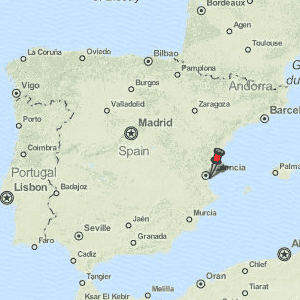 Melanie Haynes is originally from the UK and has lived in Copenhagen for eight years. She writes about life in Copenhagen on her blog Dejlige Days and after experiencing relocation to Copenhagen and Berlin, she runs a settling-in service aimed at expats called Dejlige Days Welcome and works with Copenhagen Housing to offer an integrated settling-in and home search service. Her ebook, 'Dejlige Days: A Guide to Relocation', is available now.
Melanie Haynes is originally from the UK and has lived in Copenhagen for eight years. She writes about life in Copenhagen on her blog Dejlige Days and after experiencing relocation to Copenhagen and Berlin, she runs a settling-in service aimed at expats called Dejlige Days Welcome and works with Copenhagen Housing to offer an integrated settling-in and home search service. Her ebook, 'Dejlige Days: A Guide to Relocation', is available now.EXPAT
Don’t deny your relocation experience – own it!
In this month's column, relocation expert Melanie Haynes reminds those struggling that they are not alone.
Published: 2 November 2016 09:35 CET

Relocation is often difficult, especially for parents of small children. Photo: Iris
“Your experience wasn't unique.” This was some negative feedback I received about a chapter I wrote in my book about my miserable relocation experience in Berlin.
This is the reaction many people fear they will receive if they say they are struggling with their new life abroad. Thousands of people relocate every year and they manage fine, right? Well, not always. Relocation can be a hard and isolating experience, and many people, especially women, don’t talk about the troubles they are having, for fear of a dismissive response.
They don’t want to be seen as complaining about something as small as the struggle to find the right breakfast cereal for their kids, even though this is actually not a trivial problem at all when put into the context of trying to provide some sort of continuity for children who have been transplanted to a new country and a new school without their friends.
Or not being able to find the right bus stop when taking a buggy-bound toddler to a music class where they hope to connect with some like-minded people and finally have an adult conversation with the first person who gets it.
Or the difficulty of calling the bank and finding someone who can speak English to help you actually buy that aforementioned cereal without getting hit with big bank charges by using your cards from home.
Or worrying all the time and constantly checking the latest exchange rates on the kroner, as your income depends on a favourable rate.
Or finding a place to rent in an overheated rental market whilst stuck in temporary housing with a suitcase worth of clothes and toys and a confused child who just wants their old room back.
Perhaps none of these things seem that big a deal and there are people much worse off (but then there is always someone worse off no matter what your situation). But as they start to pile up, they do start to be a bigger deal and can lead to health issues both mental and physical. If everyday activities become a struggle or take a lot longer than they usually do, it leaves precious little time for truly starting to live in your new home.
Scientists often talk about two types of thinking. There is the type in which we very actively think and this uses up a ton of energy and then there is the automatic thinking we do, which is about 90 percent of all our thinking, and take very little energy. Usually activities such as food shopping, driving and repetitious everyday activities fall into the latter category. But when we move to a new place, everyday things can start to fall into active thinking and drain our energy reserves. Which explains how stressful life can become when you move to a new place full of the unknown.
For every person who says this is typical for moving and you should simply get on with it, there are plenty who know how it feels and will be willing to talk and help you. But what can you do to make this easier?
The very first thing is to give yourself a strict talking to and I don’t mean one of the ‘pull yourself together’ variety. Be kind to yourself. It’s okay to be miserable and to find things hard. Moving to a whole new city in a completely new country is a massive deal, especially if it's the first time. The sooner you stop denying or suppressing feelings, the sooner you can start to move on.
Now is the time for asking for help. Join some online forums of people in a similar situation. Expat forums can be notorious for windup merchants (as we say in the UK) but there are a lot of people willing to help out with questions. Join some expat groups.
Here in Copenhagen, the Ladies' International Network København (LINK) is a good place to start especially if you have kids. But the biggest piece of advice is to ask in places you go: coffee shops, pharmacy or supermarkets. When you are picking up something at the counter in the pharmacy take the time to ask more about things you may need in the future — such as cold relief. Or to find paid services where you can book time with an experienced expat to help you out.
Finally, take control. Even if it is of a tiny part of your new life, feeling you are in control of something really helps. If you have a relocation consultant looking for a new home for you, make sure you are driving things forward and not waiting for them. Make a list of five things that are difficult right now, no matter how trivial, and tackle each one by making a plan for each. Figure out what you need to do, who can help and then work towards each one.
But always remember no matter how many people have been through this before, your experience is yours and yours alone.
 Melanie Haynes is originally from the UK and has lived in Copenhagen for eight years. She writes about life in Copenhagen on her blog Dejlige Days and after experiencing relocation to Copenhagen and Berlin, she runs a settling-in service aimed at expats called Dejlige Days Welcome and works with Copenhagen Housing to offer an integrated settling-in and home search service. Her ebook, 'Dejlige Days: A Guide to Relocation', is available now.
Melanie Haynes is originally from the UK and has lived in Copenhagen for eight years. She writes about life in Copenhagen on her blog Dejlige Days and after experiencing relocation to Copenhagen and Berlin, she runs a settling-in service aimed at expats called Dejlige Days Welcome and works with Copenhagen Housing to offer an integrated settling-in and home search service. Her ebook, 'Dejlige Days: A Guide to Relocation', is available now.
Url copied to clipboard!






 Please whitelist us to continue reading.
Please whitelist us to continue reading.
Member comments